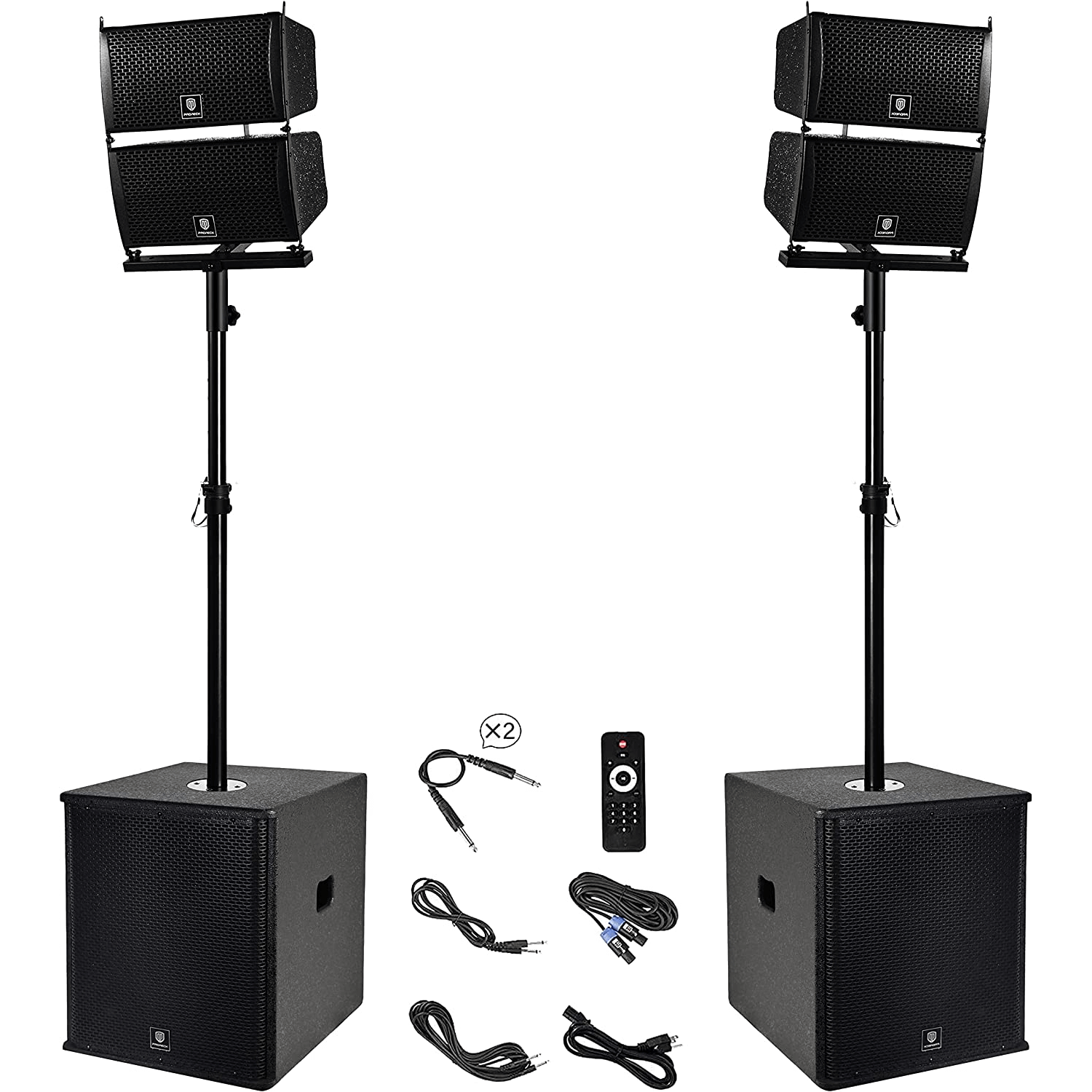Line array speakers are a popular choice for professionals in the audio technology world because of their unique features and adaptability.
When discussing PA systems, it's crucial to understand the advantages and disadvantages of line array speakers. This knowledge will help you make an informed decision for your audio needs.
Advantages of Line Array Speakers
1. Adjustable Directivity
Line array speakers have a high degree of adjustability. You can modify the dispersion angles between the speakers to create the perfect coverage shape for your audience. This flexibility allows you to tailor the sound distribution to meet the specific requirements of your event.

Practical Example -- Combining Line Arrays with Proreck Products
By combining Proreck's line array speakers, such as the PR-212TS, with their other PA system components, you can create a powerful and customized audio setup. This approach allows you to experiment with different configurations to achieve the best sound quality for your specific needs. Adding more speakers at the front can improve sound quality in high frequencies. This ensures that all areas of your venue have clear and balanced audio.
2.Modular Configuration
Line arrays typically consist of three to twenty-four speakers, each with variable dispersion angles. These speakers arrange together, often forming a column-like structure that can shape into a J-curve.
For instance, the RCF HDL-6A is a model I frequently use during performances.
We usually place three line array speakers on a stand. Sometimes, we also include an additional speaker at the front of the stage. This extra speaker is for more high-frequency sound. This setup enhances the overall audio experience.
3. Low-Frequency Steering
Multiple line array speakers combine to form a low-frequency beam. This feature is beneficial for directing bass frequencies where they are most needed. You can adjust the number of speakers and their placement to change how much space they cover.
When speakers angle the same way, they create a strong high-pitched sound beam that can travel far. Conversely, setting them all at a 10-degree angle creates a wide semi-circle, spreading the sound waves more broadly. Let's discuss the disadvantages of line array speakers then.
Disadvantages of Line Array Speakers
1. Size and Weight
One of the main drawbacks of line array systems is their size. They are usually large and require substantial space for installation and storage. This characteristic can be a limiting factor for smaller venues or events where space is at a premium.

2. High-Frequency Dispersion
While the ability to adjust angles is an advantage, it can also lead to high-frequency energy dispersion. When you set the speakers to a wider angle, they may cause the high-frequency sound to spread out too much. This can lead to a decrease in clarity and intensity. You can manage this issue, but it requires careful planning and setup.
Conclusion
Line array speakers are ideal for modern PA systems. You can easily adjust and add onto them. Additionally, they help direct low-frequency sound. However, their size and potential for high-frequency dispersion are factors to consider.
To use line array speakers effectively, learn these aspects. This will help improve your audio setup. As a result, your audience will have a better listening experience. Go to Proreck's website for great line array solutions, like PA systems and speakers that are versatile and high-quality.








comentarios